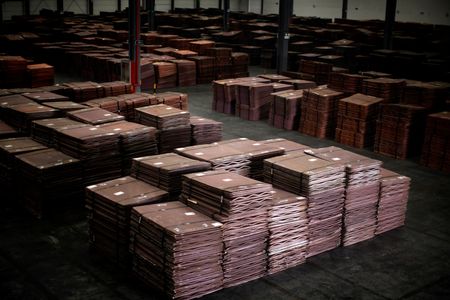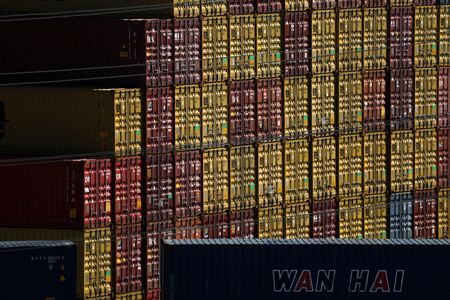By David Shepardson
WASHINGTON (Reuters) -The Federal Aviation Administration said on Monday it has finalized rules requiring aviation-repair stations in foreign countries to conduct drug and alcohol testing for employees performing safety-sensitive maintenance functions for U.S.
airlines.
The rule, which requires compliance by December 2027, will impact about 977 repair stations in 65 countries, the FAA said. The agency said foreign governments or repair stations can obtain a waiver based on existing testing and requirements.
“This rule will ensure these employees are held to the equivalent high level of safety standards, regardless of where they are physically located,” said FAA Administrator Mike Whitaker.
The rule, which requires repair stations to send their testing data electronically to USDOT, was proposed in December 2023 by the FAA, and Congress required the agency to implement its provisions.
The FAA has been considering the issue for decades.
Aviation unions for years have called for testing for maintenance functions that are outsourced to repair stations outside the United States.
Transport Workers Union President John Samuelsen said last year the proposal would close a “big safety gap.”
“Airline mechanics in China and other lower-wage, lower-standard countries who work on U.S.
commercial aircraft will have to undergo drug and alcohol testing – just like mechanics here,” he said at the time.
Airlines, which previously said privacy and employment laws in foreign countries could conflict with U.S.
drug and alcohol testing requirements, raised concerns the government may not be able to manage waivers and exemptions submitted. They said the rule could conflict with laws in the United Kingdom, Ireland, Germany, the European Union, China, Singapore, Peru, Japan, Chile, Brazil and others.
Chinese repair stations noted that China has very strict management and control of the illegal use of drugs, forbidding any misuse of prohibited drugs.
Some said, however, that drug testing is not commonly requested by companies in China.
(Reporting by David ShepardsonEditing by Bill Berkrot)











